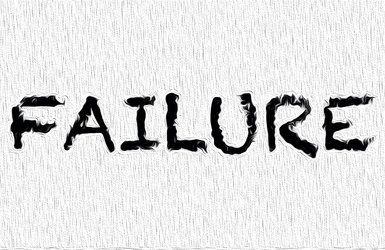Success Is A Lousy Teacher. It Seduces Smart People Into Thinking They Can’t Lose – Bill Gates
Like Bill Gates said, Success is a lousy teacher that seduces smart people into thinking that they can’t Lose. We learn more from failure than from Success, but we are wired to take the path of least resistance. Great innovators know the drill; failure eventually leads to Success, Thomas Edison, was said to have tried 10,000 times before he could create the light bulb and Sir James Dyson’s had 5,126 attempts on his path to creating a bagless vacuum cleaner.
Life is not a bed of roses, sometimes you win, sometimes your learn, whatever would go wrong, would go wrong (Murphy’s Law) but you have to keep your head high and ask yourself what is the lesson? What is the messAGE from this mess?. You just have to keep failing forward, fall down two times, and pick yourself up three times.
Here are some great quotes on failure:
